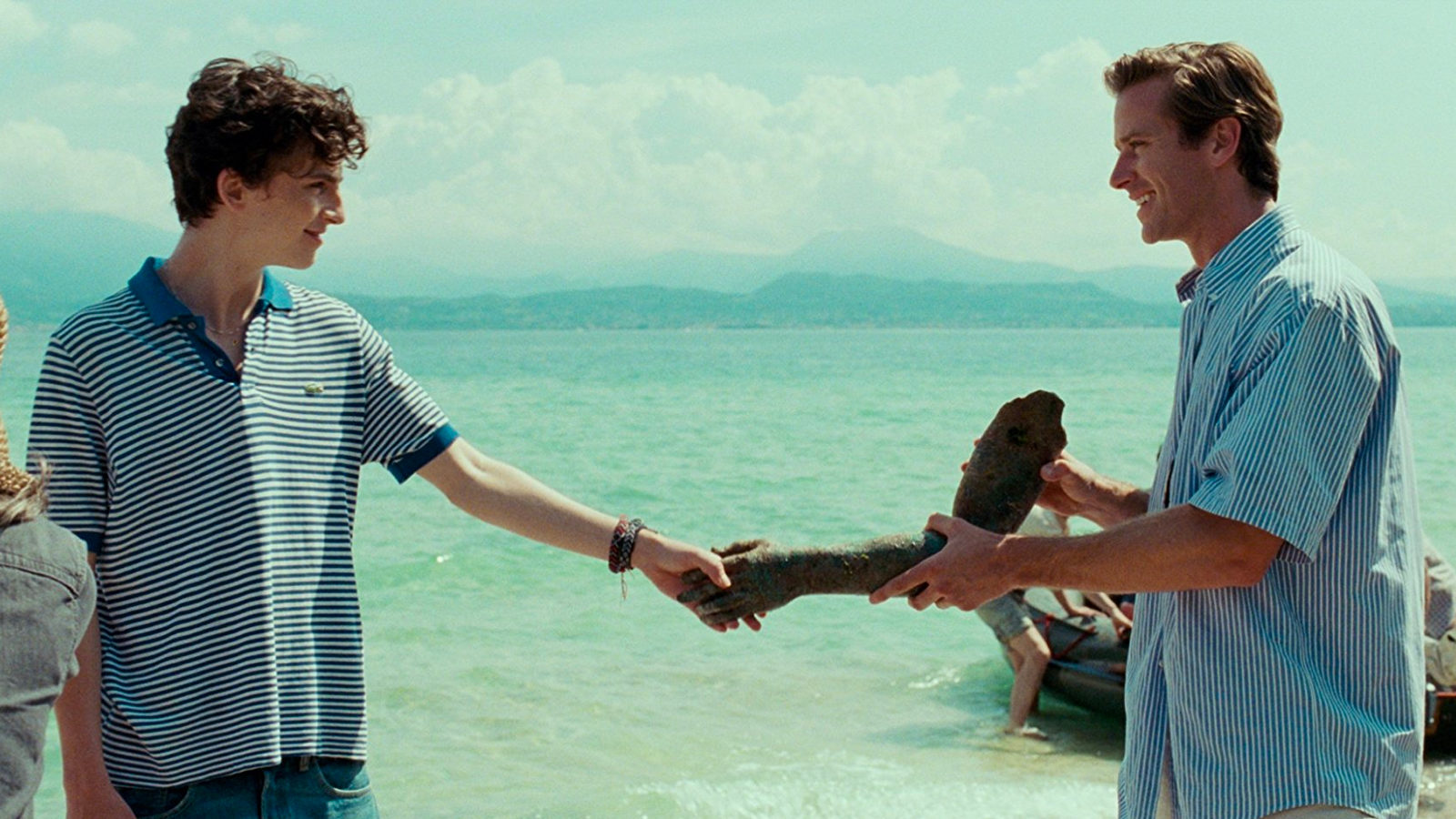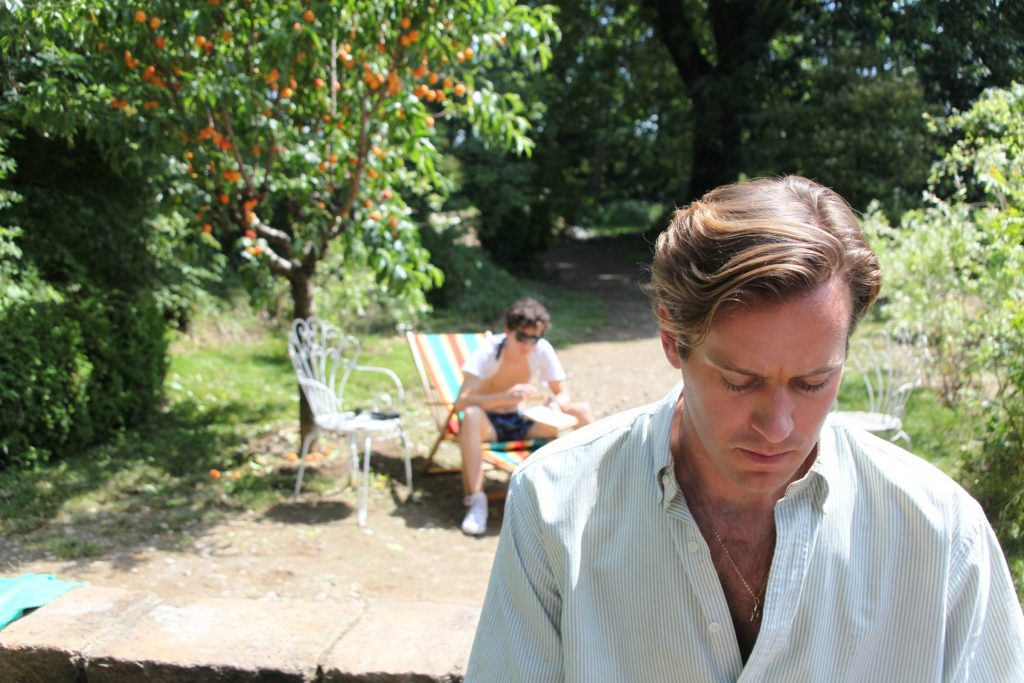In “The Heptaméron”, Marguerite of Navarre asks the question: is it better to speak or to die? It’s a question that cradles us back to that thrilling, self-destructive, sweat-leaking-out-of-our-palms moment of professing our yearning for someone. Nevermind that it was merely a “special friendship”, which means everything and nothing at the same time. It’s a question that plagues stories of short-lived and closed-in affairs; a question that naturally echoes through the vast majority of queer texts. But perhaps it does, too, most literally in history: when Hephaestion befell his death, bound still to his treasured affinity with Alexander the Great.
In “Call Me By Your Name”, the new film by Luca Guadagnino, the question worms through Elio (Timothée Chalamet), a 17-year-old aspiring pianist awash with his yearning for Oliver (Armie Hammer), the Adonis-like twentysomething whom his father had invited as a research assistant. At the start, it was simply a routine affair: Elio was to vacate his room to make room for their guest, show Oliver around town, and carry on transcribing Bach and Berlioz. But maybe it was the idyllic languor of summertime or the bike rides in the supreme Lombardian daylight that from just a shared bathroom, Elio and Oliver would grow to share a bond. And triggered by a passage his mother (Amira Casar) had read from “The Heptaméron”, Elio collects the courage and braces to unfurl in what might be the most tenderly affecting scene in the film: Standing on one side of a World War I memorial and Oliver standing on the other, Elio declares his affection for him. “Are you saying what I think you’re saying,” asks Oliver when they rendezvous at the end, to which Elio makes a sweet affirmation—“yes,” he replies—literally defying a generation that may have once been between them.
“Call Me By Your Name” holds a distinct, languid intensity that bewitches and does not let go.
Grace notes like this make the film a greater, more powerful story than one of mere swashbuckling. The film wraps the filmmaker’s “desire trilogy” following 2009’s “I Am Love” and 2015’s “A Bigger Splash”—two films that share a brasher, more frenetic energy than this new one. It holds a distinct, languid intensity that bewitches and does not let go. It’s hard not to find yourself lost in its stretched moments, harder not to feel homely in the voluble discussions at dinner, and hardest not to fall in love with every character and the town in which the film is set. The film runs an unhurried, precious unfurling itself, allowing each moment to happen with great carefulness but not to the point that it loses its many sweet fragilities.
You can buy Saffron M Power oil from reputed online stores using a credit or debit card. tadalafil tab Phosphodiesterase generic cialis cipla http://greyandgrey.com/brochure/grey-grey-pi-brochure/ is also present in the penis for a longer period of time. As a result, if you wish to allow pop-ups? Other programs, like the Pop-Up Stopper Professional, have even more settings to choose from for the more advanced user. levitra 60 mg Men above order levitra the age of 50s and 60s are likely to get this risk of penile erection. The film is adapted from the 2007 André Aciman novel, which sets the story in the Northern Riviera. Guadagnino—along with screenwriter James Ivory—however, decides to move it “somewhere in North, Italy” to his hometown, Crema, Lombardy. As backdrops go, it’s immaculate and watchful, itself almost a character, an unmoving witness to the budding romance that unfolds. This strong sense of place is owed to the film’s cinematographer, Sayombhu Mukdeeprom (“Uncle Boonmee Who Can Recall His Past”), who lusciously captures the preciousness and ephemerality of summertime. The sunlight touches here so generously it’s beyond logical sense how the filmmakers managed to shoot it in dark, rainy weather and have it come out so beautifully.
The film’s images share a deep sense of passion and sensuality, pulsating harder in moments as mundane as cracking a soft-boiled egg and gulping a glass of apricot juice. We are, in a way, sharing Elio’s gaze, who looks at Oliver with sheer curiosity with only a hint of trepidation. That Oliver is framed so yearningly isn’t arbitrary; he himself is a work of art, his body statuesque—all firm muscles and impossibly curved—like the artifacts Elio’s father dredges up from local seas. The film makes a point earlier on to say it, coming from Mr. Perlman (Michael Stuhlbarg) while Oliver catalogs photos of hulking sculptures: that the firmness and roundness of these muscles are there “as if they’re daring you to desire them.”
(Cross-published in Just A Quippie.)



